When you think about reducing food waste do you imagine yourself using leftover porridge and saving vegetable peelings?
I can’t say I ever did before I went along to a cooking class at Cfine.
The charity has a community kitchen at its base on Poynernook Road, near Union Square where it holds different classes like cooking on a budget or confidence to cook courses.
As part of Climate Week North East, Cfine and Granite City Good Food held a zero waste cooking day.
So I went along to learn some different ways to cut down on my food waste — and save some money while doing so.
Read on to find out how we:
- Got into a pickle learning how to pickle
- Found a new use for carrot peels
- Used old porridge to make bread
- And perfected the perfect pancake flip
‘Bottom of the fridge’ soup to start
There was a group of eight of us, and donning our aprons we all rather sheepishly trundled into Cfine’s training kitchen, the Cook at the Nook.
The class was being run by development worker Sean McVeigh and sustainable food coordinator Martin Carle.
Sean told us we’d start the class by making soup, an easy way to use up leftover veg, and we were quickly put to work.
I diced some onions at my station, while my classmates set about peeling and chopping their vegetables.
Soon enough, we were all throwing our ingredients into the big soup pan at the front of the class.
But we were told to keep all the peelings.
Things like the carrot peels, we were told, could be drizzled in oil and baked in the oven to make vegetable crisps.
I was surprised to see the cauliflower leaves were being kept though.
Getting creative with pickling
As the soup simmered away and we all started to warm up to each other it was time to move on to the next part of the class — pickling.
Maybe it’s not for everyone, but it’s a brilliant way of preserving some foods and I was excited to try it.
Some classmates were dubiously looking at Sean’s samples and taking a precautionary sniff while others bravely grabbed a fork.
We were given some basic instructions but the combinations were left to us and everyone was encouraged to get creative.
The community kitchen had suddenly turned into a hive of activity, with people going back and forth from the ingredients table carrying different spices.
I could hear one woman called Karen ask if pears could be pickled, which I never even thought about before but sure enough she grabbed the fruit and got to work.
Her son Frazer was with her, and following his mum’s lead, decided to try pickling apples.
I felt quite boring slicing up an onion into thin strips in comparison.
But I experimented with some flavour and added chilli and mustard seeds, and it smelled so fine.
Different smells wafted around as the sound of fun and laughter genuinely filled the space.
And those cauliflower leaves that had been kept were actually being pickled by one of the volunteers helping run the course, as well as some left-over celeriac.
Soon everyone had a different-looking jar filled with their very own perfect pickle.
And what about leftover porridge?
The third, and final, task was making pancakes using leftover porridge.
I’d heard of using oats in pancakes before… but not porridge and neither had any of my classmates.
But again, we were given our instructions and the volunteers happily bounced between the stations to check on our progress.
Not only did the pancakes have cold, leftover porridge in them, but also a mashed-up banana. I have to admit, it looked so lumpy and unappealing.
You really, really have to trust the process for this one, I guess.
The four guys in the stations across from me said they’d never made pancakes before. But they were having so much fun and we kept looking across at the other stove tops to see what each other was up to.
And despite having never made pancakes before, they started expertly flipping them.
We all sat down together to enjoy our hard work
After everyone had added the finishing touches to their pancakes we all sat around the table and Sean laddled our soup into bowls.
While we’d been busy pickling and flipping pancakes, the Cfine team had been blitzing our soup and baking some leftover porridge bread — who knew there were so many uses for your breakfast scraps?
In just a couple of hours we had created a feast and I couldn’t help but feel proud as I took in all our hard work.
Our soup made from whatever vegetables we’d thrown in smelled wholesome, plates of pancakes stacked high and topped with bright fruit and different coloured jars packed with creative combinations for every palate.
And best of all, not only was there no waste, but everything tasted amazing.
The soup was hearty and full of flavour, while the crispy carrot peelings were sprinkled on top to add texture.
And the pancakes — despite their gloopy-looking beginning — were fluffy and sweet.
I was so happy with how everything turned out, and my classmates shared the same feeling as we all chatted about our day.
What did my classmates think about their experience?
“Never in a million years did I think about putting porridge in pancakes,” Sadique said.
The 28-year-old volunteers at Cfine and had come along after hearing about the class to learn some new skills.
He later told me he enjoyed being “surrounded by people” and that it gave him the confidence to try new things.
Sadique added: “I found it quite inspiring and it all tastes really good.
“I would definitely come back, and at Cfine there’s an opportunity for everyone to get involved.”
Meanwhile, this was the second year Karen and Frazer had attended a zero waste cooking class at Cfine.
They both loved it so much they wanted to come back and learn new skills.
Frazer explained: “I do quite a lot of zero waste stuff at home, I’ve got that mindset anyway, so when I heard about it coming round again I signed up.
“It’s just knowing what to do. Like they made too much porridge, so knowing what to do with the leftovers and being more aware about if it’s waste or if it’s still edible, like the tattie or carrot peelings.”
His mum agreed and added: “It makes you think about what you’re throwing out and new ways to use things up.
“I would never have made pancakes with porridge and I’ve never pickled either, but I imagined it was a lot harder than it was.”
“I’d try it again,” she finished.
Why are cooking classes important at Cfine?
Martin said the class was to get people thinking about food waste and how to make the best of ingredients.
And the recipes chosen, particularly the pancakes and pickling, were ways to reduce food waste people might not have thought about before.
While reducing food waste is good for the planet, it’s also a great way to make money go that little bit further.
He said: “This event was held for Climate Week North East but when it comes to our climate and nature emergency, that’s quite connected to the cost of living crisis in many ways.
“Being able to have a good quality, nutritious meal on a budget is really important. Some of the recipes from today will help people make some of those decisions and help recipes and ingredients go further.”
I had a flippin’ good time and learned some new skills
I like to think I’m quite a good cook and try to be as zero waste as possible — whether that involves meal planning, buying loose vegetables where I can or freezing leftovers.
But I found this class made me think about what else I could be doing in the kitchen to be a little bit more sustainable.
Like turning carrot peelings into a crispy, tasty topping for soup instead of launching them straight into the food waste caddy.
Or pickling different vegetables and adding different spices to keep it different instead of spending more than £3 on a jar from the store. Although my “perfect pickle” was just onions I now know what to do and plan on making different concoctions soon.
And even just being more creative with the ingredients I have, whether that’s using up vegetables in a “bottom of the fridge” style soup, or making something out of leftover porridge.
Learn more about Cfine’s cooking classes:
You can find tips on the Granite City Good Food website about cooking on a budget.
If you want to join a Cfine Cooking on a Budget class email mhume@cfine.org or find out more online.
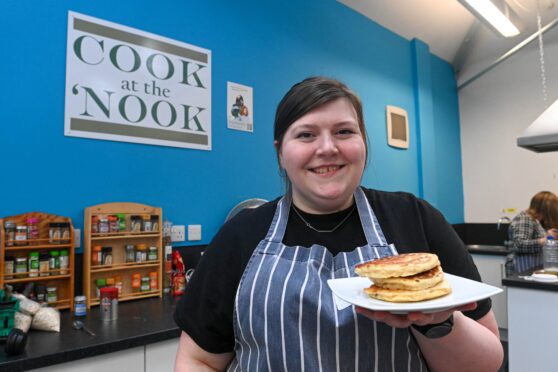
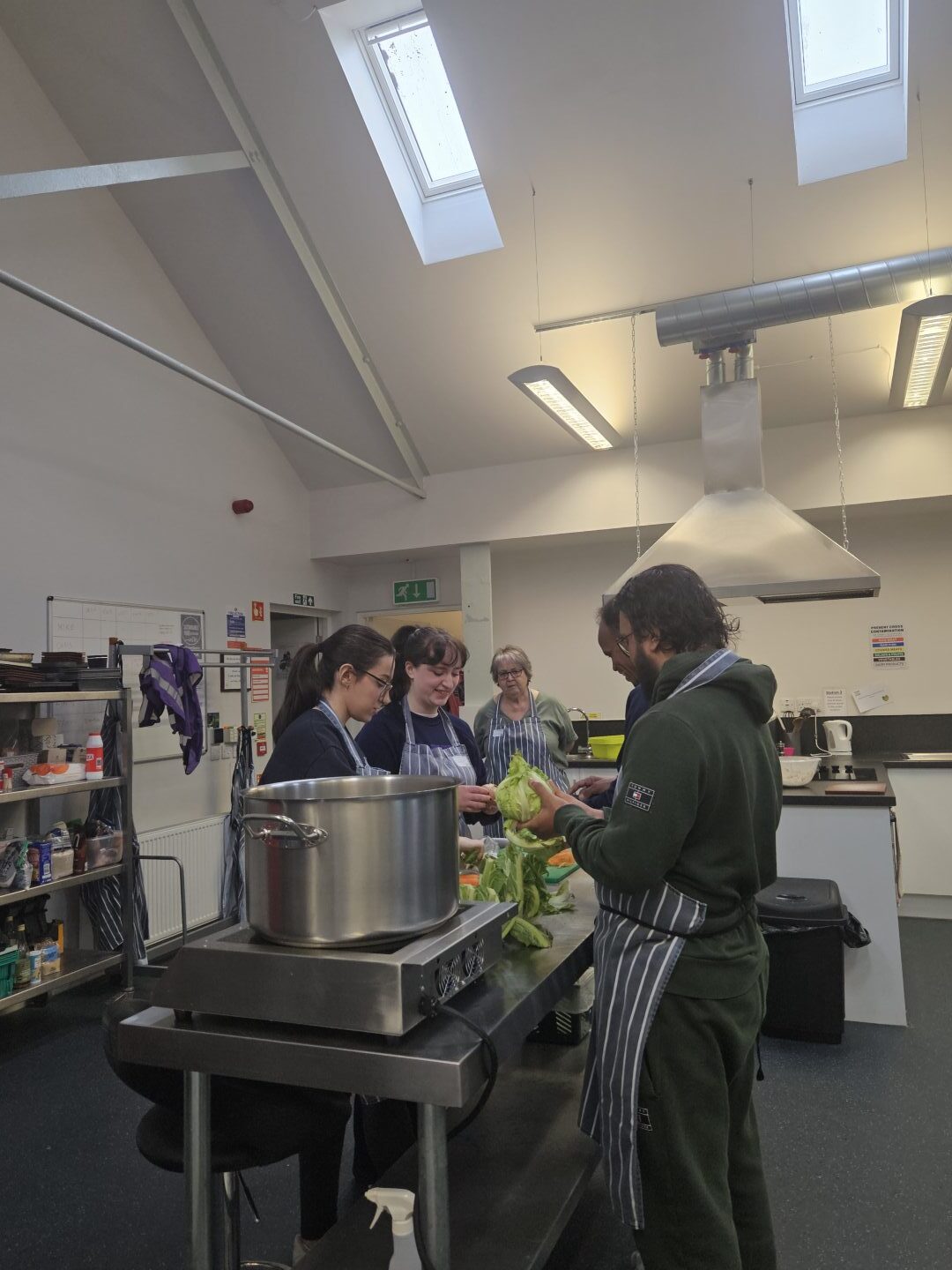
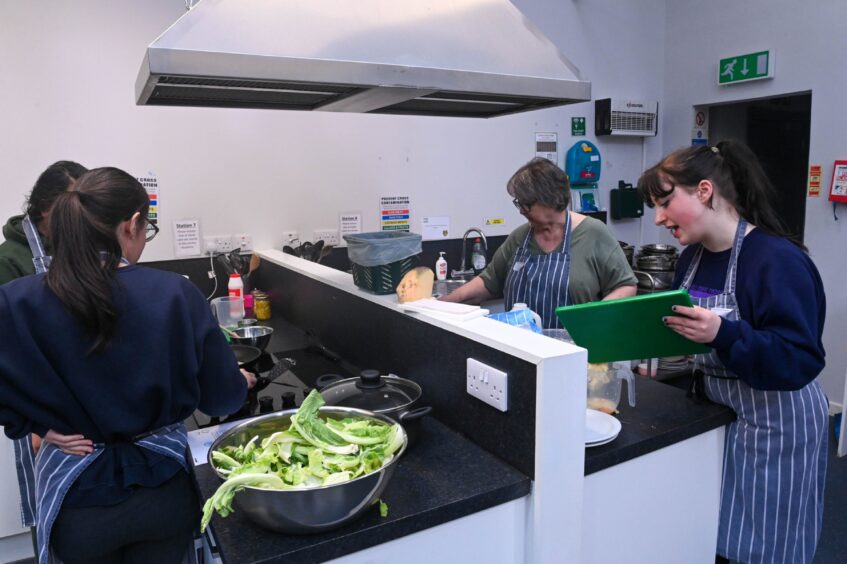
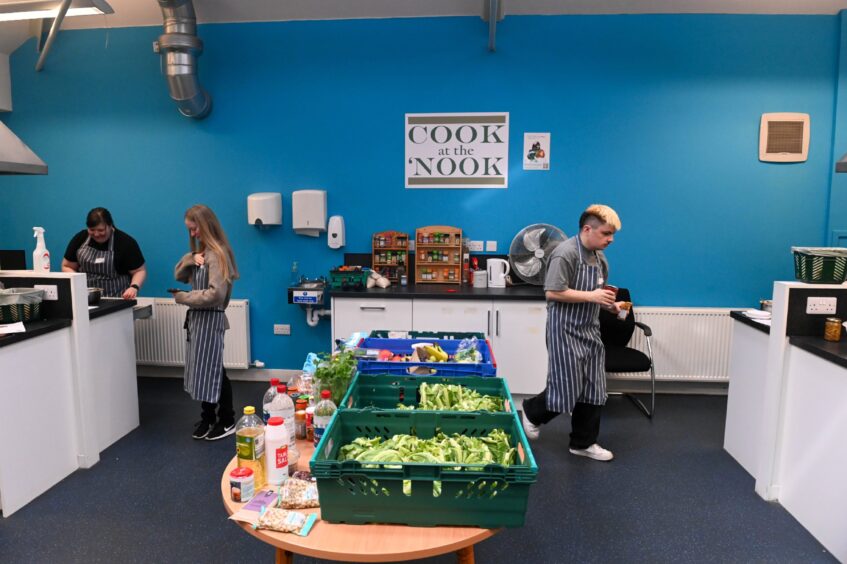
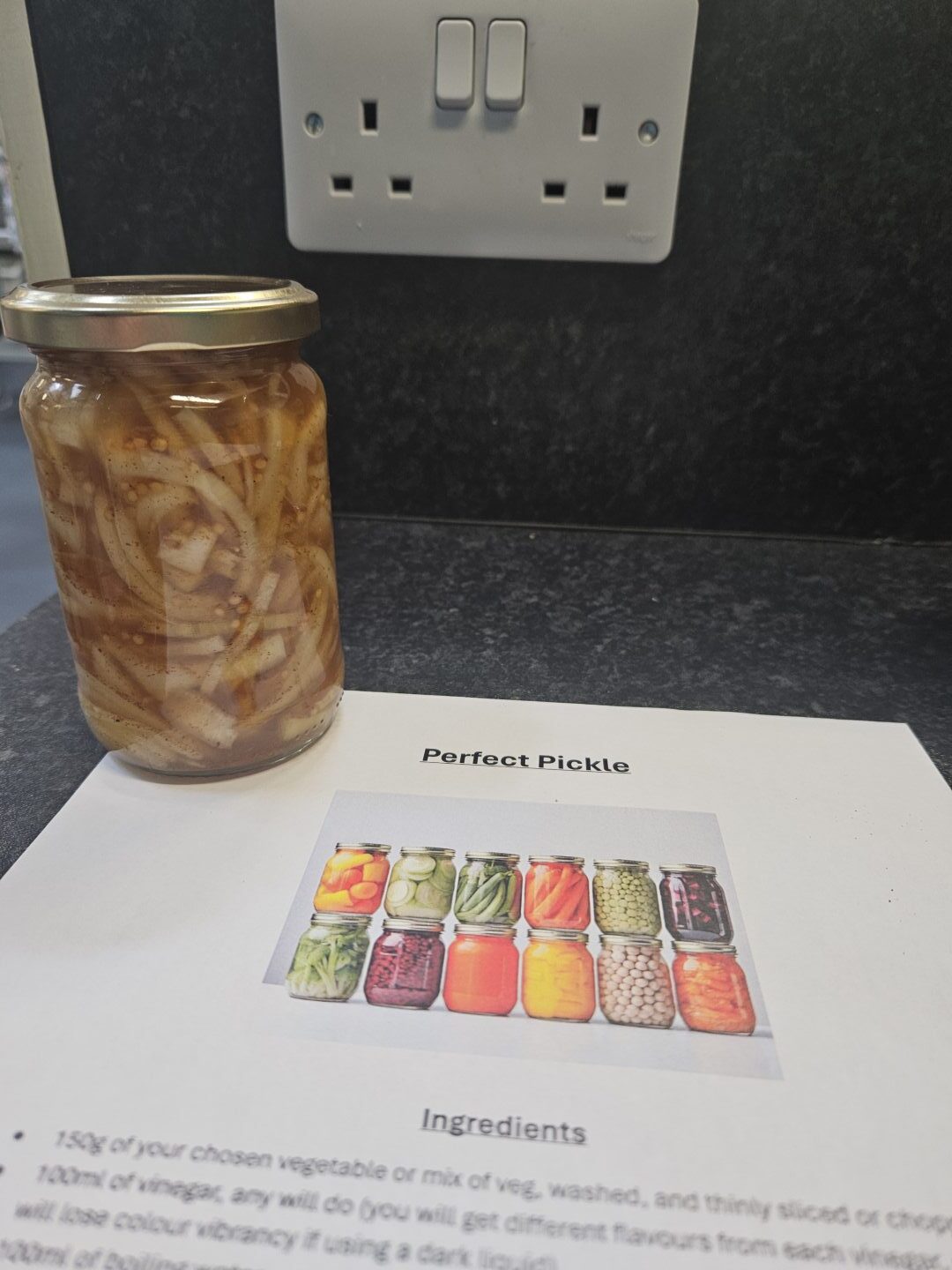
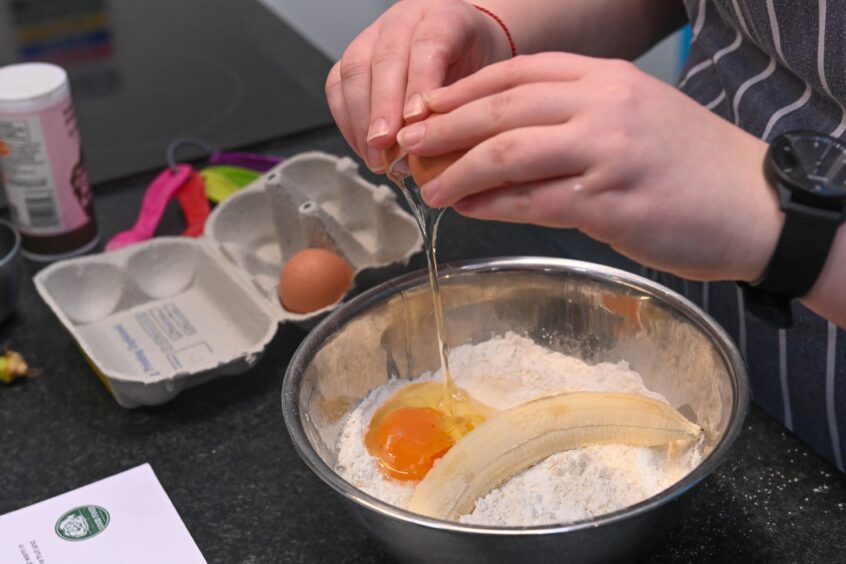

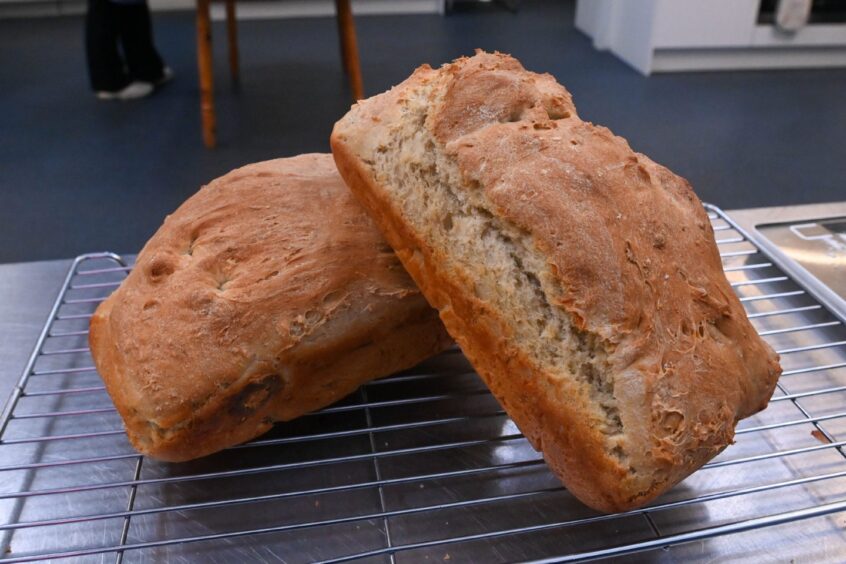
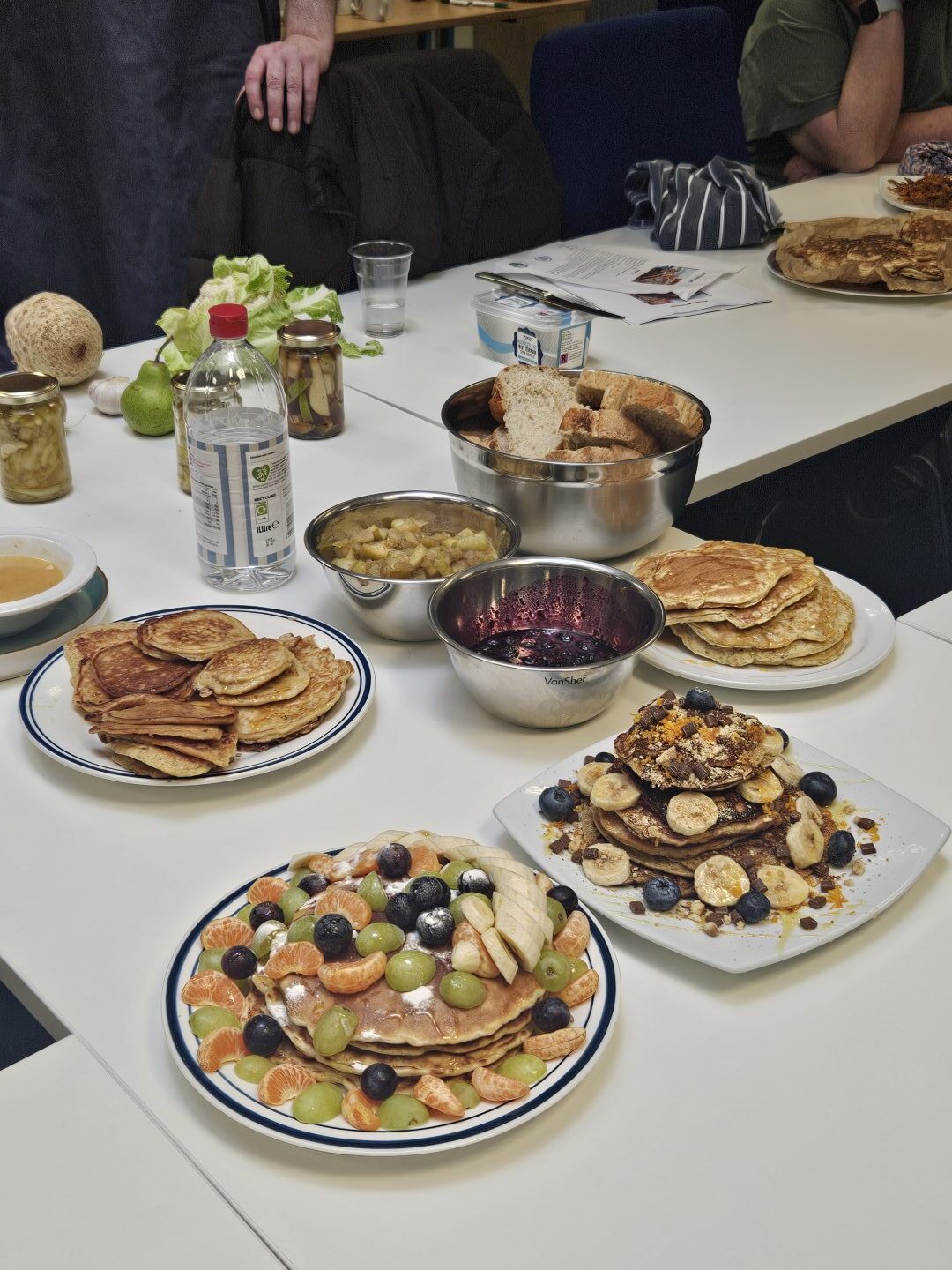
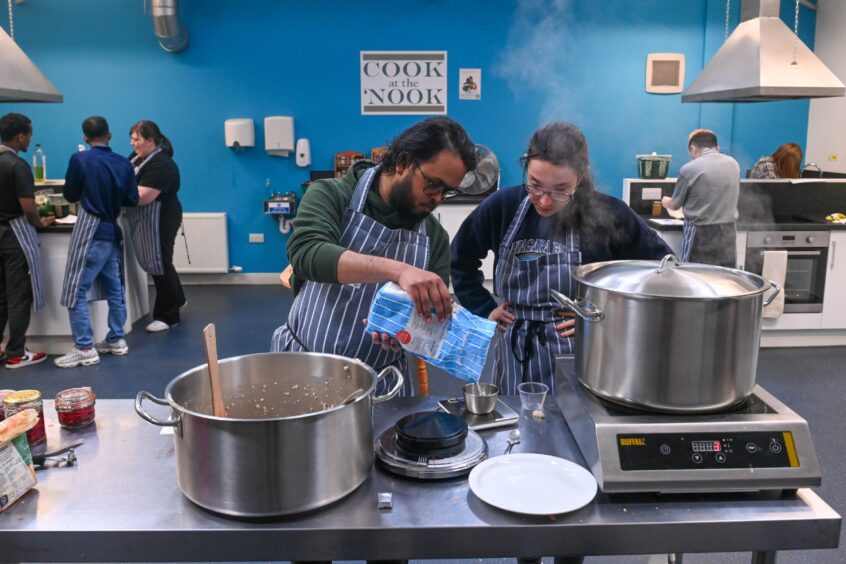
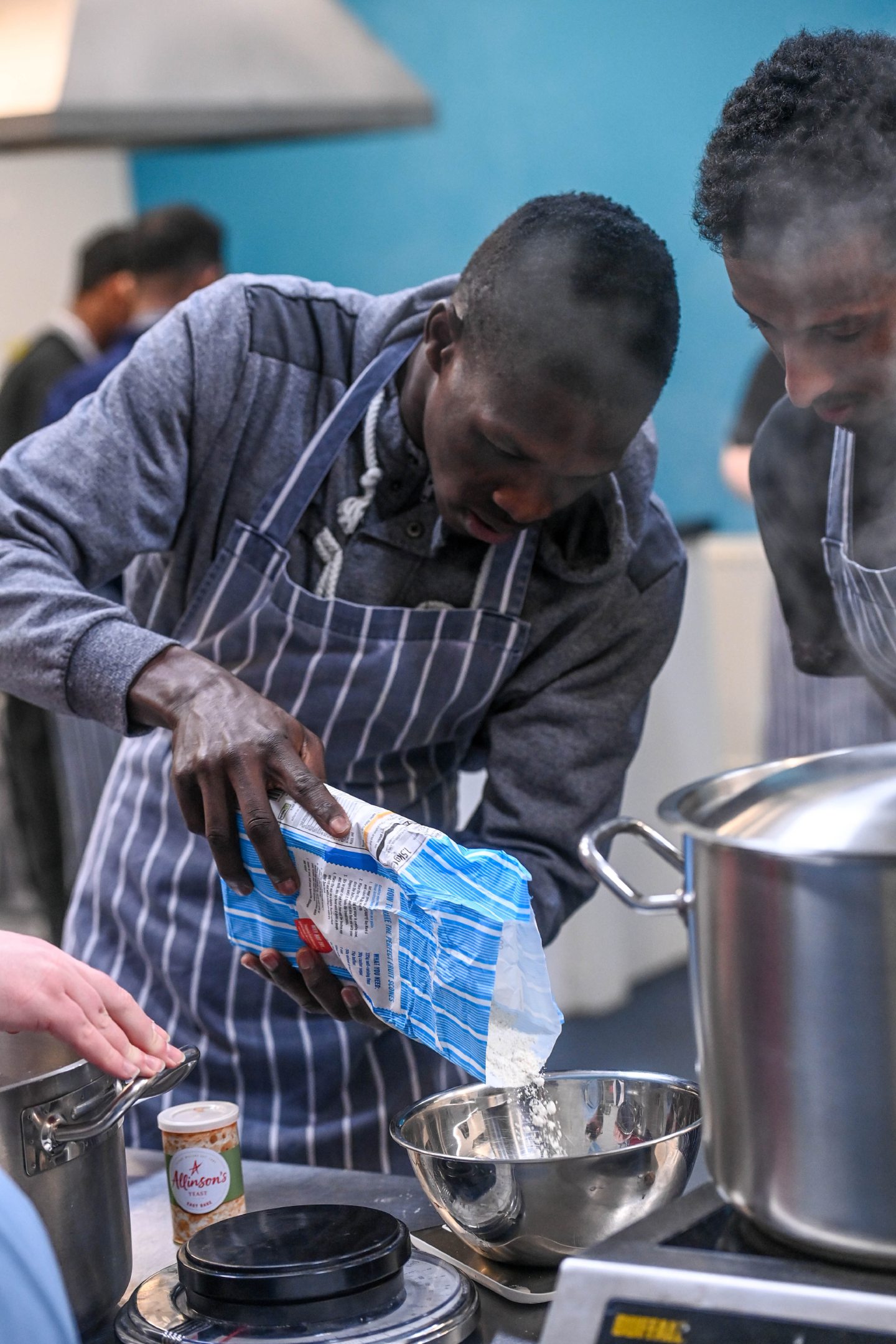

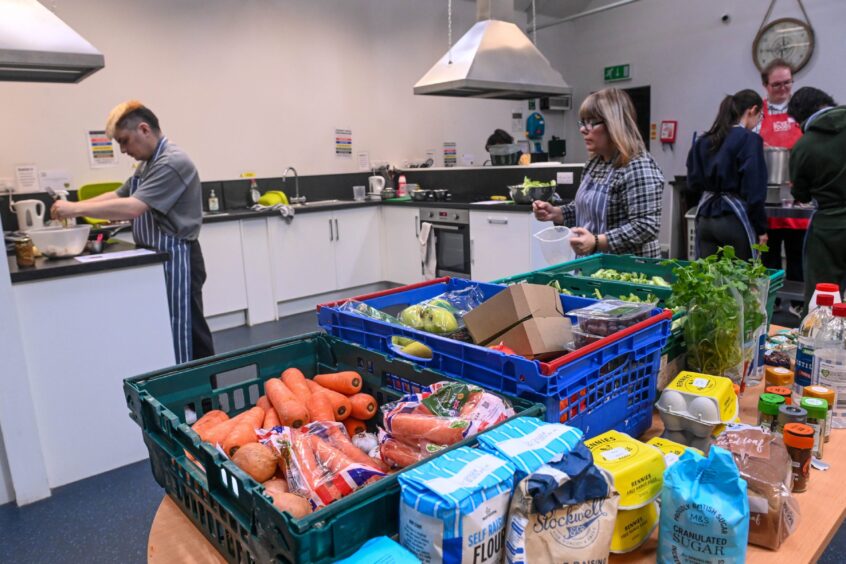

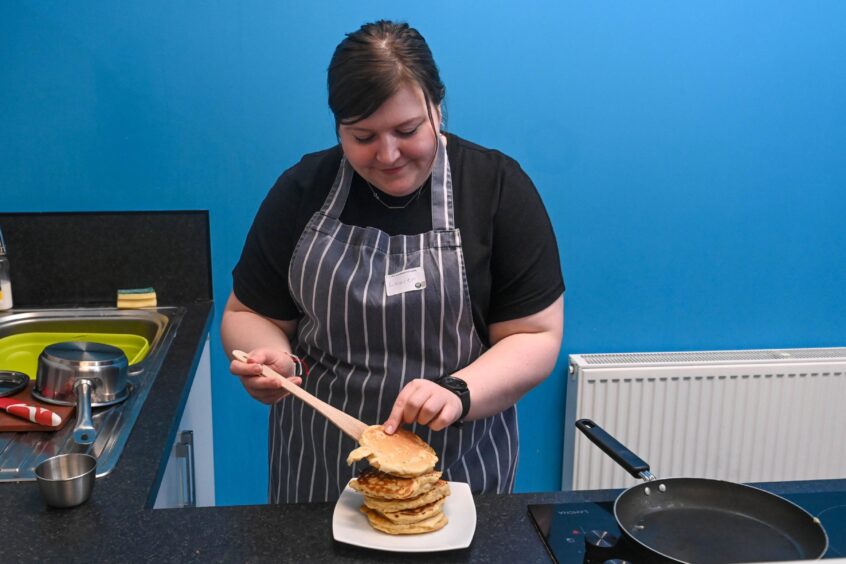
Conversation